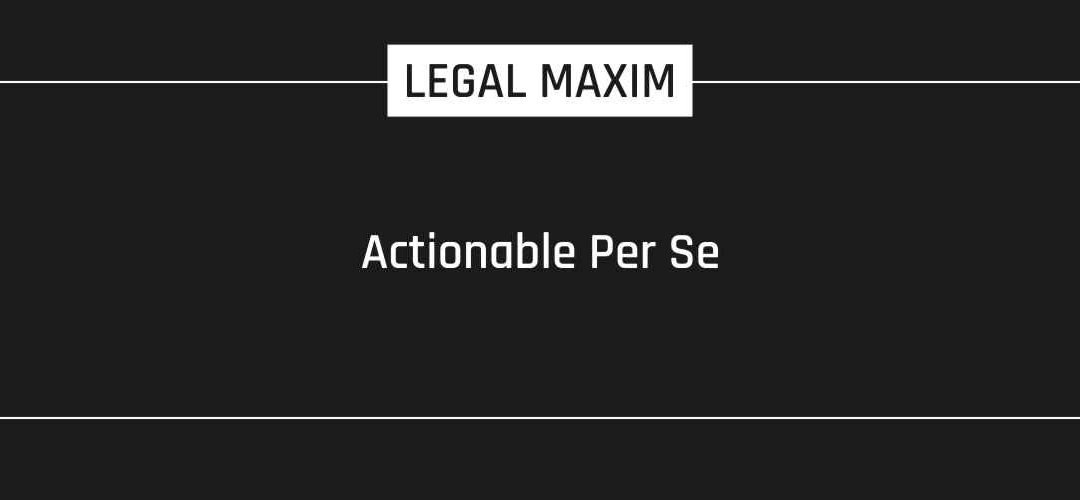Literal Meaning
The very action is punishable, no proof of damage is required.
Origin
Australian Law
Explanation
Actions that do not require the allegations or proof of additional facts to constitute a cause of action. Such a tort is actionable simply because it happened. In such actions, the plaintiff does not have to prove that he suffered any damages in order to have a cause of action. Tort claims normally require proof of damages. If you haven’t suffered any loss, you have no claim. A tort that is actionable per se does not require proof of damages to be actionable; such a tort is actionable simply because it happened. Of course, if you are unable to show that you have suffered any loss, the damages you recover are unlikely to be significant. Defamation and trespass are two class examples of torts that are actionable per se.
Illustration
In cases of assault, battery, false imprisonment, libel or trespass on land, the mere wrongful act is actionable and it is immaterial that the plaintiff has not suffered any damage as a result of it. Words are actionable per se if they are obviously insulting and injurious to one’s reputation. In lawsuits for libel or slander, words that impute the commission of a crime, a loathsome disease, or unchastity, or remarks that affect the plaintiff’s business, trade, profession, calling, or office may be actionable per se. No special proof of actual harm done by the words is necessary to win monetary damages when words are actionable per se.
Case Laws
In Ashby Vs. White, the defendant, a returning officer, wrongfully refused to register a properly tendered vote of the plaintiff who was a legally qualified voter. In spite of this, the candidate for whom the vote was tendered was elected and no loss was suffered by the rejection of the vote. It was held that the defendant was liable because he deprived the plaintiff of his legal right of registering his vote. Thus, the court referred to the maxim, actionable per se.
In Srikant Roy Vs. Satcori Shaha, the lower Court found that the expression was made use of for the purpose of inducing the Judge to disbelieve the plaintiff’s testimony, in other words, it was equivalent to an imputation that the plaintiff was giving false evidence; and as giving false evidence in the course of a judicial proceeding is an offense punishable under the Penal Code, the decision comes within the English rule that words imputing an indictable offense are actionable without proof of special damage. So defamatory words imputing to the plaintiff that he is [when the words are made use of] afflicted with a contagious disorder are actionable; as also are defamatory words concerning tradesmen and professional men spoke of them in the way of their business or profession; words imputing misconduct or gross ignorance or incapacity to professional men in the discharge of their professional duties; and words imputing official misconduct to a person in an office of profit or trust. Apart from these five classes of cases, mere vituperation and abuse by word of mouth is not actionable, without proof of special damage.

This has helped me understand an action per se and it’s influential in my legal field
This is a useful document in details that helped us to understand the meaning of of this legal maxim. thanks.